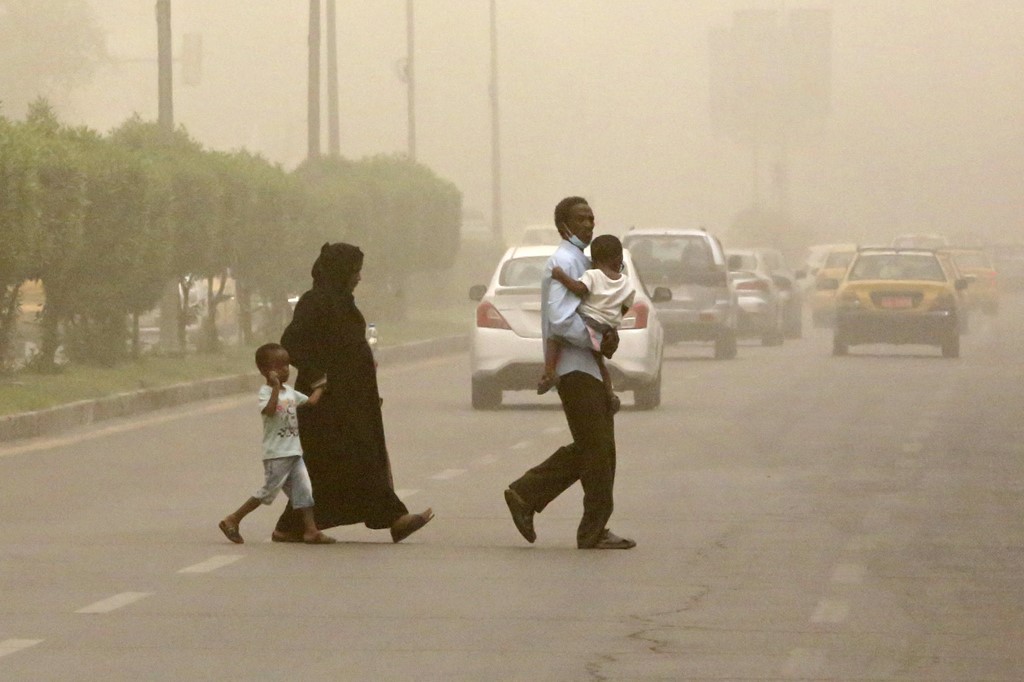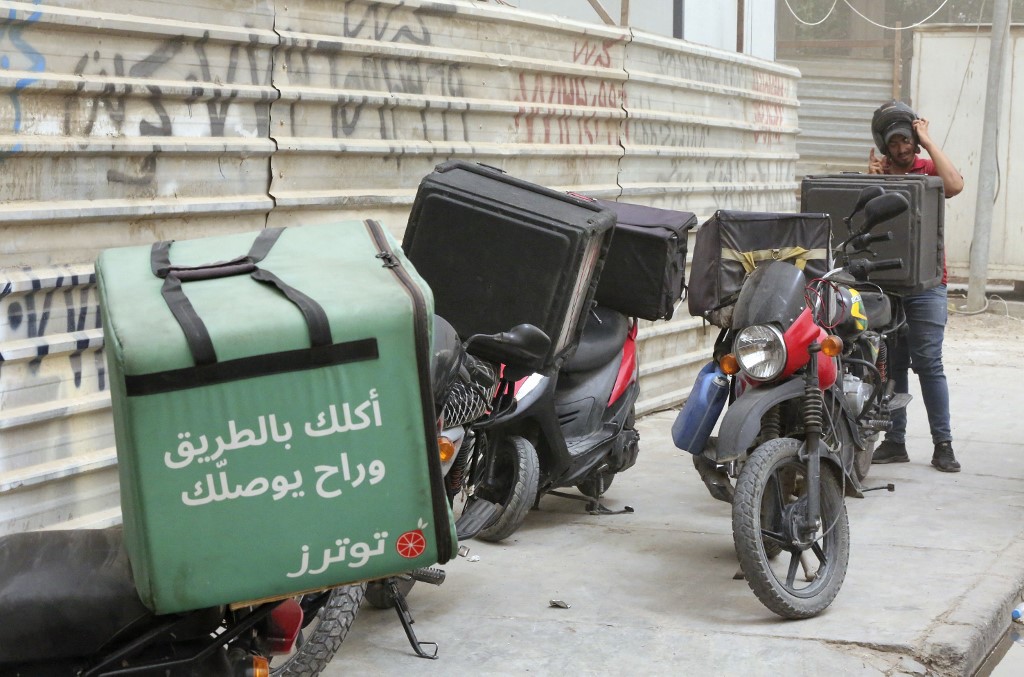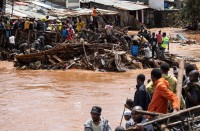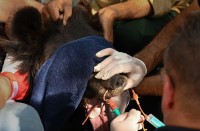
by Tony GAMAL-GABRIEL
Agence France-Presse
BAGHDAD, Iraq (AFP) — Another sandstorm has darkened Iraqi skies and it’s hard to breathe, but Baghdad motorcycle delivery rider Milad Mitti doesn’t have the luxury of missing a day’s work.
Like most people in the now blistering hot desert country, the 30-year-old battles on in frustration, wearing goggles and a grey neck warmer over his mouth and nose “so I can breathe”.
Iraq, still recovering from decades of war, is now facing new environment challenges on an unprecedented scale: since mid-April it has weathered a dozen dust storms that have often shrouded it in an otherworldly orange glow.
Thousands have been rushed to hospitals so far, and on Sunday, as has happened many times in recent weeks, airports were again forced to delay flights for hours due to the poor visibility.
Most Iraqis never bothered with face masks when the Covid pandemic was in full swing, but they do now.
“This is probably the first year that Iraq has had so many sandstorms,” said Mitti in a busy square in the center of the sprawling capital, which was baking in 40 degrees Celsius (over 100 degrees Fahrenheit) heat.
“It is very difficult to see,” he said. “It’s suffocating. It’s hot. You have to drink juice and liquids to protect yourself.”
A married man, he said he relies on the job which pays him about $600 a month.
“I have a family,” he said. “I have responsibilities.”

– Layers of dust –
On the deserted terrace of a cafe in the capital, the black faux-leather chairs were once more covered with a film of dust.
A waiter, with a brown apron tied around his waist, wiped them with a wet cloth, then hosed down the floor with water.
In May, the sandstorms sent at least 10,000 people to hospitals with respiratory problems, claiming at least one life.
Many patients were elderly or suffering from asthma, other respiratory ailments or heart disease, the most at-risk groups.
After Sunday’s dust storm, more than 500 people were rushed to hospitals across the country for respiratory problems, health ministry spokesman Seif al-Badr said Monday.
At his Baghdad hospital, doctor Seif Ali Abdel-Hamza saw four patients on Sunday, as this time the sandstorm in the capital lasted just hours, not days.
“The more intense the storms get — the more storm days you have, as it has been the case in recent weeks — the more cases of choking there will be,” said the chief resident at al-Kindy hospital.
“The majority of patients suffer from chronic diseases, such as asthma or allergic bronchitis, the majority are elderly.”
– ‘You suffocate’ –
Oil-rich Iraq is ranked one of the five countries most vulnerable to the impacts of climate change and desertification, a key factor driving the sandstorms.
Over the next two decades, it can expect 272 dusty days per year, and this is projected to surpass the 300-day mark by mid-century, said an environment ministry official.
To combat the phenomenon, authorities say they are considering planting “green belts” around cities.
But the country of 41 million, despite the mighty Tigris and Euphrates rivers, also suffers from water shortages and declining rainfall.
“Before, there was a green belt around Baghdad. If we replant, it will be very useful,” said electrician Razzak Jassem, 35.
Lashing out at the state mismanagement, he denounced the government “failings” and “billions spent on nonsense”.
“Every time the storm is over, you have to wash down the whole house,” he said. “No matter how much you insulate, the dust gets in.”
The worst thing is having to work during the sandstorms, he said during a work break in a shop where he was installing lighting.
“You put on a mask, it gets in the way. You suffocate, you want to take it off,” he said. “You take it off and there is the dust.”
Yet Jassem, too, as a married father of three, will just have to keep going to make ends meet.
“We’ll stop working when we die,” he said. “As long as we’re alive we have to work.”
© Agence France-Presse







